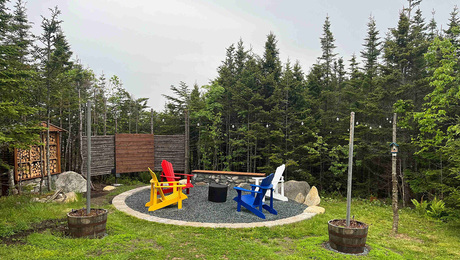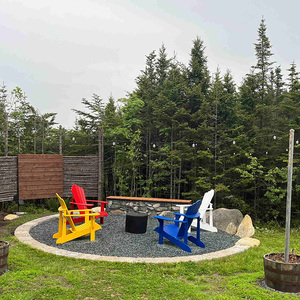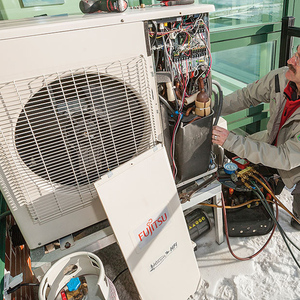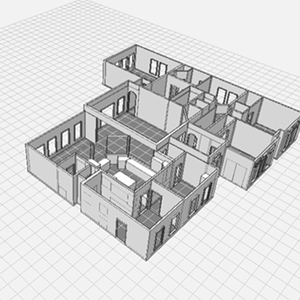I have just moved iinto a house that has been empty for three years yet the past owners have used top quality material and did not skimp…The first night there we turned the water heaters on (2ea. 100 gallon tanks, side by side on seperate breakers) and they heated up just fine but through the night they tripped the circuit breakers on their main panel…tried again to test the system and again last night they tripped both of their respective circuits…where should I start in diagnosing the problem…I am a babe in the woods
Discussion Forum
Discussion Forum
Up Next
Video Shorts
Featured Story

Listeners write in about fireplaces affecting family harmony and bionic suits, before asking questions about brick steps, ground-source heat pumps, and building a dome greenhouse in Maritime Canada.
Featured Video
SawStop's Portable Tablesaw is Bigger and Better Than BeforeHighlights
"I have learned so much thanks to the searchable articles on the FHB website. I can confidently say that I expect to be a life-long subscriber." - M.K.
Fine Homebuilding Magazine
- Home Group
- Antique Trader
- Arts & Crafts Homes
- Bank Note Reporter
- Cabin Life
- Cuisine at Home
- Fine Gardening
- Fine Woodworking
- Green Building Advisor
- Garden Gate
- Horticulture
- Keep Craft Alive
- Log Home Living
- Military Trader/Vehicles
- Numismatic News
- Numismaster
- Old Cars Weekly
- Old House Journal
- Period Homes
- Popular Woodworking
- Script
- ShopNotes
- Sports Collectors Digest
- Threads
- Timber Home Living
- Traditional Building
- Woodsmith
- World Coin News
- Writer's Digest


















Replies
What's the rating on the HWHs? Are they like 3500/5000 watts? What's the rating on the breakers? Can you tell the wire size?
Odd that they both tripped. Might be good to measure your house voltage - if it's low, devices would try to pull more amps.
Forrest
I am not sure what any of these ratings are yet...like I said, I am a babe in the woods. I will get thse answers and get back to you later after work
"Odd that they both tripped. Might be good to measure your house voltage - if it's low, devices would try to pull more amps."No, not with a resistive load.I = V/RLess voltage, less current..
.
A-holes. Hey every group has to have one. And I have been elected to be the one. I should make that my tagline.
See! That why you're the electrician! Was thinking about my AC compressors coming on in the summer. . .
Forrest - humbled
Somebody here at work told me that once a breaker has tripped the integrity of the breaker is deminished and I should first replace the breakers since over the years they might have become "weak"...I would think this would be a first thing to check to see if the system will work with a minimal of $ spent
No one has yet told you welcome to BT!!
Welcome, you will find some strange characters here but may get some good advice.
Without test equipment, first thing I'd check about 15 minutes after turning on a cold water heater is if the breaker is getting warm. This would indicate that the input or output connections or both loosed up or have some corrosion after sitting for 3 years. If in an unheated area, moisture condensation and some corrosion could be possible.
So, what I would do first, would just be a visual inspection and touch to see if the breaker is warm. It should be nearly the same temp as other unloaded breakers.
If you happen to have test equipment (probably not), a strip chart recorder on the current, voltage, and temperature over one heating cycle time will usually show exactly what is going on.
If you have an ammeter and voltmeter, check those and do Bill's calculation. Other than that, the look and touch is as good as it will get. If you had a megger, you could check the elements for corroded pinholes or cracks (improbable on both at the same time unless you have a very low or high pH water)
What type (brand and type) breaker? It is very unusual for a non-operating breaker to become "weak".
Any lightning storms the night the breakers tripped??
Good luck.
Yeah, a basic visual inspection is obviously first -- any signs of leakage, do the wires seem to be intact and properly secured, etc. If you trust yourself to do it safely, remove the breaker panel cover and observe if the wires going to the breaker appear to be burned or discolored at the connections. Do the same, if you feel safe doing it, at the other end, behind the access panels on the water heater. (Turn the breaker off when doing these checks, but still treat the wires as "live".)Then as Junkhound suggests, check the breaker to see if it's warm, indicating a defective breaker or a bad connection between breaker and wire or bus bar.If it's not a bad connection, it's probably either a bad thermostat or a bad element (though it could be a "weak" breaker). This is reasonably easy to trouble-shoot if you know what you're doing and have a meter, but very tricky (and potentially hazardous) for us to describe to someone who isn't familiar with electrical stuff.The possible failure modes on the water heater end:
1) A defective thermostat is causing both heating elements to come on at once. Normally the top thermostat should disconnect the bottom element when it turns on the top element -- if they both come on at once the circuit is overloaded.
2) A burned-through element, resulting in electrolytic heating and excessive current draw.You can try turning the bottom thermostat all the way down to cold and see if that helps temporarily. This may (or may not) help if either the top thermostat is turning on both elements or the bottom element is burned through. (It's not a "permanent" fix, obviously.)
If your view never changes you're following the wrong leader
It's very possible that one of the elements has cracked, and is leaking current through the water.
jay,
I may be quite incorrect but have had a similar situation happen.
Open the cover plate on the heaters thermostats/ elements.
Pull aside the insulation and check for moisture around the thermostats or wiring.
If the area is damp or wet it can cause the breaker to flip.
If it is wet or damp leave it open for a day or so to dry, then retry the heaters. Mine worked for while but soon had to be replaced due to leaks.
Something else to check is poor connections at the breakers. Unlikely, but they can cause severe heating which could trip the breaker. But really, I would first replace the breakers with new ones that are properly sized. I got a electric dryer once because it had the motor, heating elements, and thermostats replaced and still tripped the breaker. So they bought another dryer, that also tripped the breaker. Replaced the breaker, problem gone.
I have no experience with electric water heaters, but I hear that only one element is on at any one time. If both elements were on there will be excessive current draw. Someone could have done something goofy to the water heaters.
Thank you for the "welcome" to the group and ALL the suggestion are to be followed up this weekend. I will get back to everyone on what is being done...I feel so lucky and blessed to have such a wonderful group to communicate my frustrations and joys too.
Without using test equipment it's unlikely you'll be able to solve the problem . It COULD be something obvious and visual, but the circumstances of having 2 of them failing in exactly the same way is a bit odd....
Replacing parts without diagnosing first is a poor method of repair. Water heaters aren't usually very complicated and an electrician would probably be able to figure it out pretty quick.
I'd recommend you spring for the $100 or whatever service-call fee and hire one to check them out.
Hang around and watch what he does, and learn.
Ed
being a babe in the woods it won't take much prompting to do a call to a professional...but still the challenge to do this myself will keep me going until I hit a roadblock in knowledge or pose a danger to myself..
The biggest danger to yourself was probably coming here.
If your view never changes you're following the wrong leader